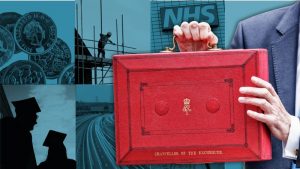AUTUMN BUDGET 2017

The Chancellor Philip Hammond presented his first Autumn Budget on Wednesday 22 November 2017. Some of the key announcements are set out below.
Property and housing
Mr Hammond promised to use a £44bn package of investment, loans and guarantees to increase the annual number of new homes to 300,000 in the middle of the next decade, from 217,000 last year, aided by planning reforms designed to encourage homebuilders not to sit on permissions already granted.
Stamp duty changes to help home buyers
Stamp duty land tax is to be abolished for first-time buyers purchasing a UK home worth up to £300,000, in a reform that official forecasts said would also trigger a rise in house prices.
Health spending
The government promised an additional £2.8bn in funding over the next three years, including a tranche of £350m that would be given immediately to allow trusts to plan for winter. A further £1.6bn will be allocated in 2018-19, with the balance in 2019-20. The chancellor presented it as an exceptional move to help the service cope with an ageing population and technological advances.
Income tax allowance
The personal income tax allowance will rise from £11,500 to £11,850 in April 2018, while the threshold at which the higher rate of tax of 40 per cent applies will rise from £45,000 to £46,350. The changes will save the average basic rate taxpayer £1.35 a week.
Pensions
Pension’s tax relief remained unchanged. The Budget also confirmed the lifetime allowance for pensions is to increase to £1.03m from next April.
Minimum wage
Minimum wage increase Britain’s minimum wage workers will receive an inflation-busting pay rise next April, with the hourly rate going from its current £7.50 an hour to £7.83. However, plans to raise the rate for the over-25s to £9 an hour by 2020 has been derailed by the weaker economy.
Motoring
A tax raid on diesel car buyers, estimated to be worth close to £500m, led a suite of measures to encourage motorists to switch to electric vehicles amid efforts to improve Britain’s air quality.
Despite this the chancellor chose to freeze fuel duty again, a popular measure that costs more than £800m a year to support.Bottom of Form.



